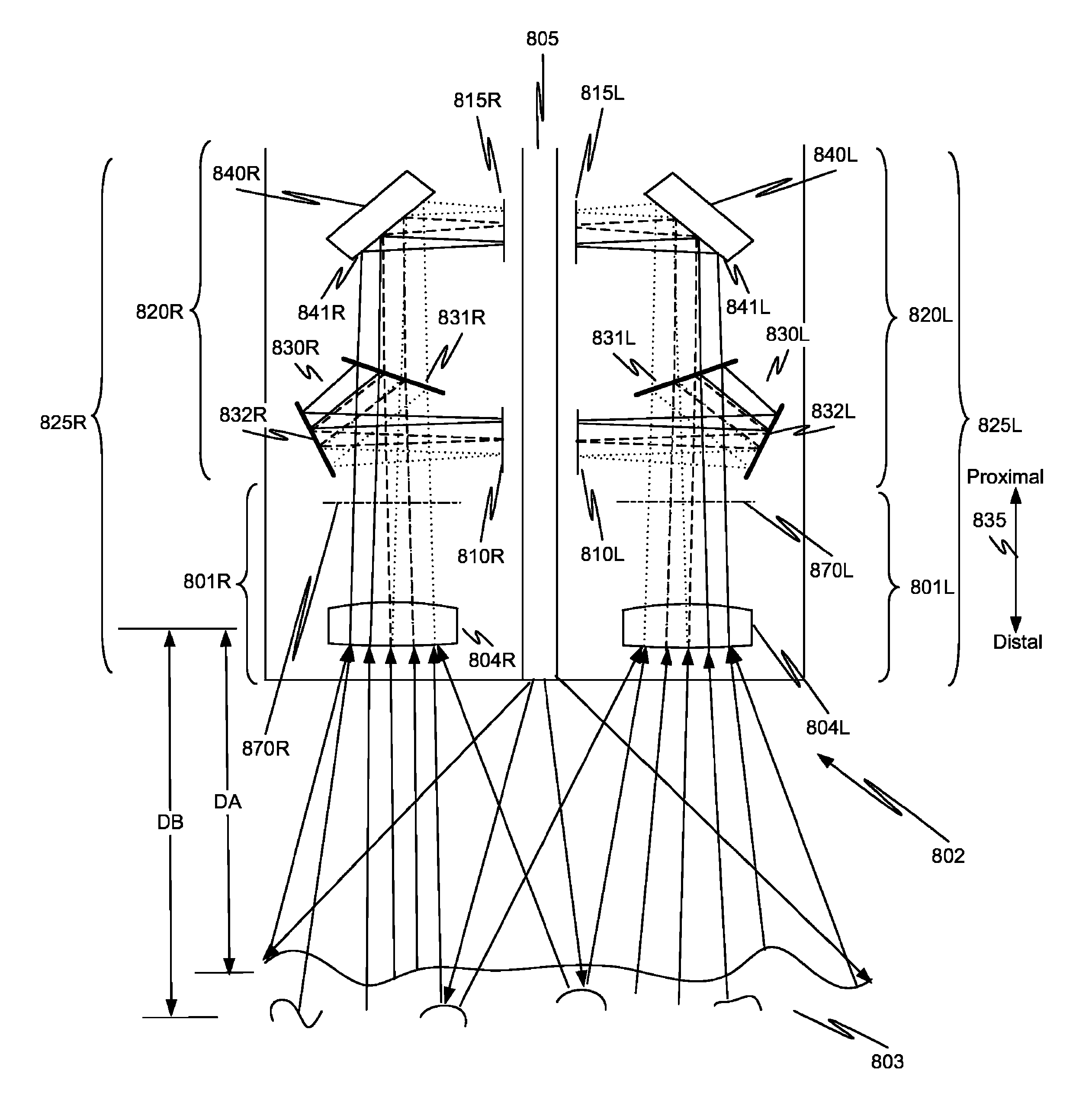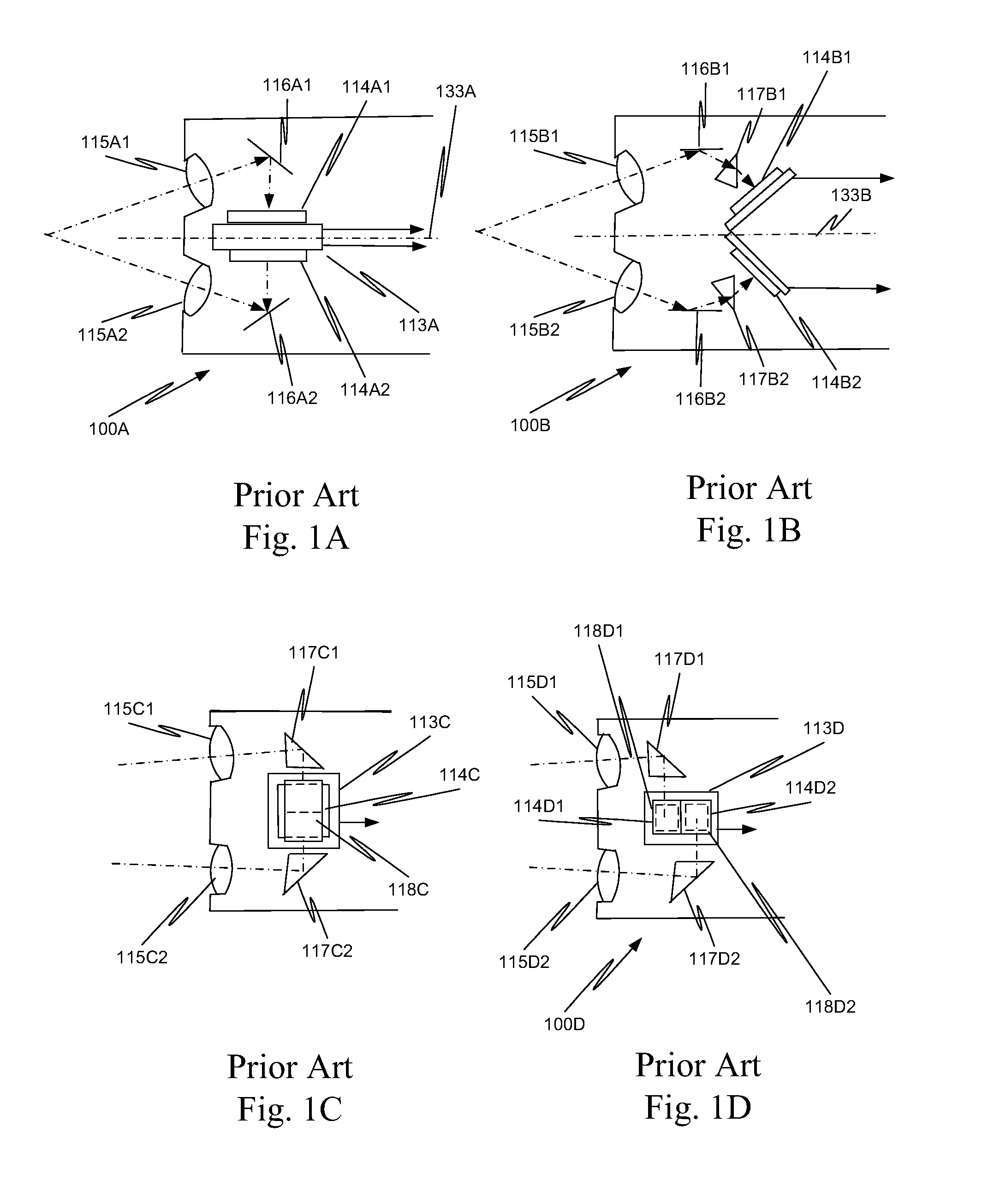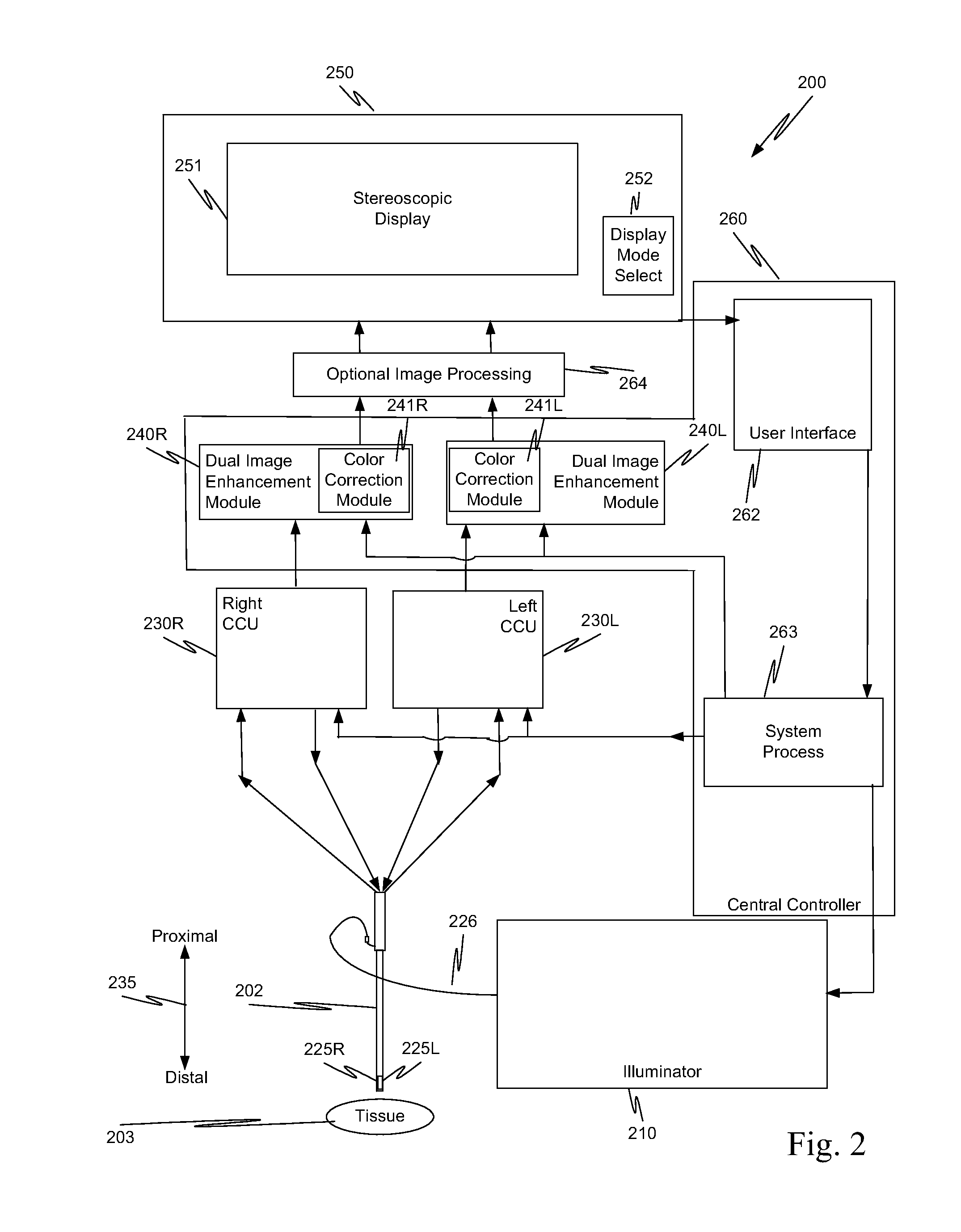Image capture unit in a surgical instrument
a surgical instrument and image capture technology, applied in the field of endoscopic imaging, can solve the problems of lateral color distortion, uneven performance of left and right image sensors, and difficulty in high-quality stereoscopic images in small outer diameter distal-end image capture systems, and achieve the effect of eliminating the need for lens calibration
- Summary
- Abstract
- Description
- Claims
- Application Information
AI Technical Summary
Benefits of technology
Problems solved by technology
Method used
Image
Examples
Embodiment Construction
[0063]As used herein, electronic stereoscopic imaging includes the use of two imaging channels (i.e., one channel for left side images and another channel for right side images).
[0064]As used herein, a stereoscopic optical path includes two channels (e.g., channels for left and right images) for transporting light from an object such as tissue to be imaged. The light transported in each channel represents a different view (stereoscopic left or right) of a scene in the surgical field. Each one of the stereoscopic channels may include one, two, or more optical paths, and so light transported along a single stereoscopic channel can form one or more images. For example, for the left stereoscopic channel, one left side image may be captured from light traveling along a first optical path, and a second left side image may be captured from light traveling along a second optical path. Without loss of generality or applicability, the aspects described more completely below also could be used...
PUM
 Login to View More
Login to View More Abstract
Description
Claims
Application Information
 Login to View More
Login to View More - R&D
- Intellectual Property
- Life Sciences
- Materials
- Tech Scout
- Unparalleled Data Quality
- Higher Quality Content
- 60% Fewer Hallucinations
Browse by: Latest US Patents, China's latest patents, Technical Efficacy Thesaurus, Application Domain, Technology Topic, Popular Technical Reports.
© 2025 PatSnap. All rights reserved.Legal|Privacy policy|Modern Slavery Act Transparency Statement|Sitemap|About US| Contact US: help@patsnap.com



